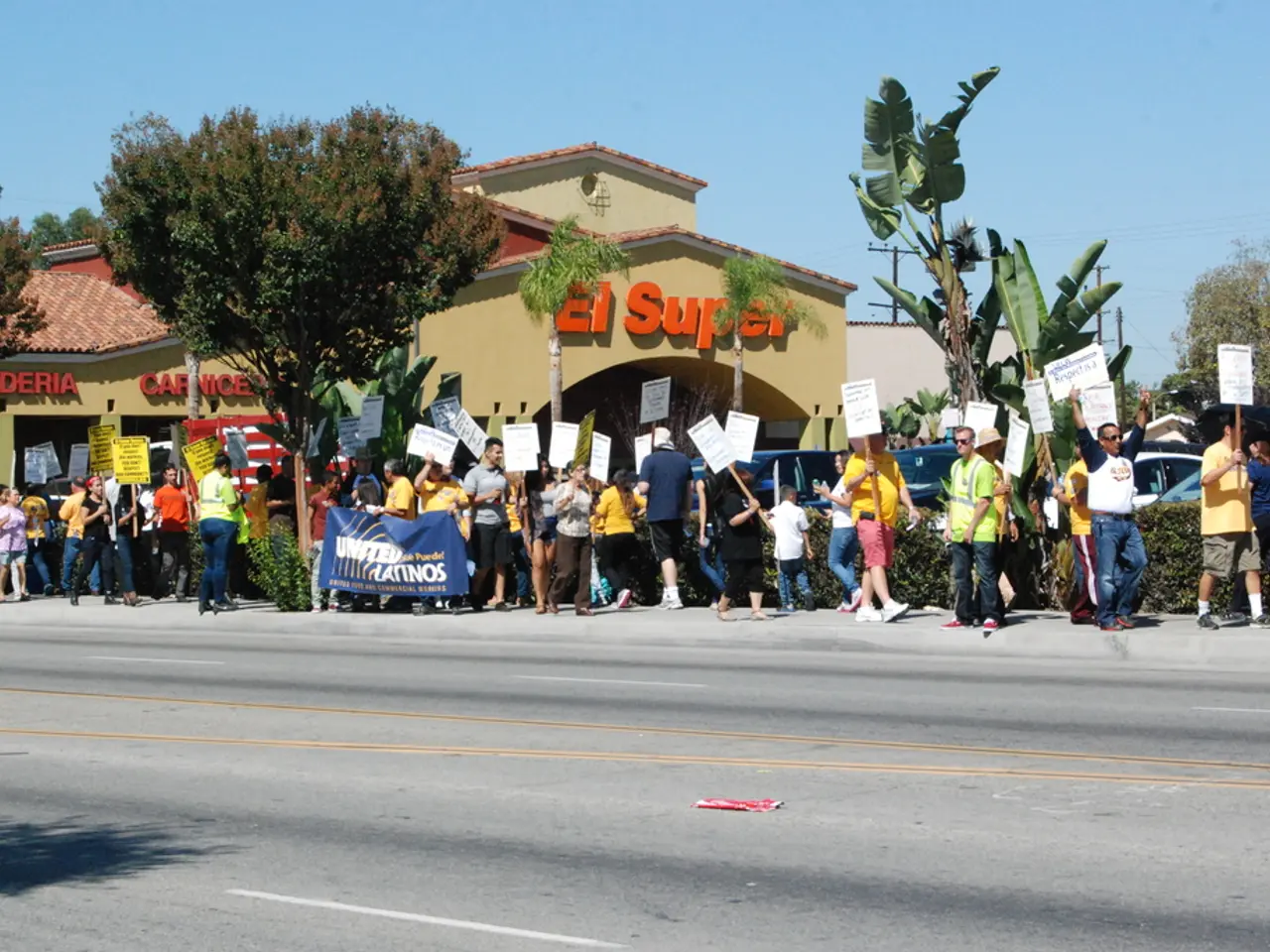Democrats declining return to Texas amidst Trump's warning of FBI intervention
In a series of unexpected events, the political landscape in Texas has been shaken by the suggestion and subsequent request for the FBI to become involved in a state legislative matter.
On Wednesday, Texas Democrats staying at a hotel in Chicago were evacuated due to a bomb threat. The St. Charles Police Department responded to the report, but no device was found [1]. This incident, however, is not the main focus of the current controversy.
The real controversy arises from the Texas Democratic lawmakers fleeing the state to prevent a quorum required for voting on a Republican-backed redistricting map, effectively halting the legislative process [1][2]. In response, Texas state authorities, including Governor Greg Abbott and Attorney General Ken Paxton, have issued arrest warrants for the absent legislators [2][5].
However, with many Democrats outside state lines (in states like Illinois, California, and New York), Texas law enforcement cannot legally compel their return [2][5]. U.S. Senator John Cornyn, a Texas Republican, formally requested FBI assistance to locate and possibly arrest the absent lawmakers across state lines. Remarkably, FBI Director Kash Patel reportedly granted this request [4][5].
President Trump publicly stated the FBI "may have to" get involved, suggesting federal law enforcement might aid in enforcing state legislative attendance. However, the FBI declined to comment on its involvement [1][2][4].
The implication of this potential federal involvement is significant and controversial. Federal authority to arrest state legislators who have fled to other states is unclear and likely unprecedented. Generally, the FBI operates under federal jurisdiction and must have a valid federal law violation to arrest individuals. Absence from a state legislative session is a state law issue, typically handled by state authorities [2][5].
Arrest warrants for quorum-busting legislators are generally administrative or procedural under state law. Whether these justify a criminal arrest, especially by federal agents, raises significant legal challenges [2]. Legal experts note difficulties in pursuing criminal charges, such as proving intent to commit bribery or other crimes, if charges beyond absence are sought [2].
The involvement of the FBI has been criticised as a potential abuse of power or political weaponization of federal law enforcement, especially by Democrats and some legal observers, given the partisan context [4]. Texas law allows for legislators to be removed from office for "abandonment" under the state constitution, creating vacancies that governors can fill, but this is a political and constitutional remedy rather than a criminal matter [1].
As the situation unfolds, the implications of this potential federal involvement remain a topic of intense debate, with critics viewing this as a possible overreach and politicization of the FBI, while supporters argue it is necessary to uphold the rule of law and legislative responsibilities [1][2][4][5].
- The debate over the potential federal involvement in the Texas legislative matter has expanded to include concerns about the clarity of federal authority to arrest state legislators and the potential politicization of federal law enforcement.
- The suggestion for the FBI to become involved in the Texas legislative matter, specifically in the arrest of absent Democrats, has been met with criticism from Democrats and legal observers, who view it as a potential abuse of power or political weaponization of federal law enforcement.
- The possible federal involvement in the state legislative matter in Texas, and the arrest of Democrats who have fled to other states to avoid voting on a Republican-backed redistricting map, raises questions about the jurisdiction of federal policy and legislation in war-and-conflicts, politics, crime-and-justice, general news, and accidents, particularly when dealing with state legislative matters.








